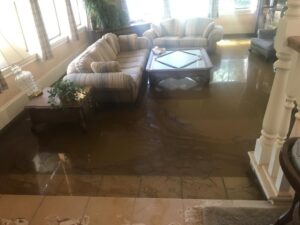
Waterproofing is a crucial aspect of maintaining the integrity and longevity of residential buildings and homes. Proper waterproofing measures help protect the structure from water damage, moisture infiltration, and subsequent issues like mold growth, structural decay, and compromised indoor air quality. we will explore the importance of waterproofing for residential buildings and homes, along with effective techniques and considerations for ensuring maximum protection.
Understanding the Importance of Residential Waterproofing
- The detrimental effects of water damage on residential structures
- Financial implications of water-related repairs and restoration
- Health risks associated with mold and mildew growth
Common Areas Vulnerable to Water Intrusion
- Basements and crawl spaces: Waterproofing solutions for below-grade areas
- Roofs and attics: Preventing leaks and water seepage from above
- Exterior walls: Shielding against moisture infiltration
- Windows and doors: Ensuring proper sealing and protection
Effective Waterproofing Techniques for Residential Structures
- Exterior waterproofing: Barrier systems, sealants, and membranes
- Interior waterproofing: Drainage systems, sump pumps, and vapor barriers
- Roof waterproofing: Shingles, coatings, and gutter maintenance
- Foundation waterproofing: Damp-proofing and foundation drainage
Selecting the Right Waterproofing Products and Materials
- Waterproofing membranes: Types and considerations
- Sealants and coatings: Choosing the appropriate products for specific applications
- Drainage systems: Channels, French drains, and gutters
- Insulation materials: Balancing moisture control and thermal efficiency
Signs of Water Damage and the Need for Waterproofing
- Mold or mildew growth
- Musty odors
- Stained walls or ceilings
- Peeling paint or wallpaper
- Cracks in the foundation or walls
Professional Waterproofing Services
- The benefits of hiring experienced waterproofing contractors
- Assessing the expertise and reputation of service providers
- Obtaining quotes and understanding the scope of work
DIY Waterproofing
- Small-scale preventive measures homeowners can take
- Limitations and potential risks of DIY Waterproofing
- When to seek professional assistance
Waterproofing is a crucial investment for homeowners looking to protect their residential buildings and homes from the damaging effects of moisture infiltration. By understanding the vulnerable areas, utilizing effective techniques, and selecting the appropriate products or services, homeowners can ensure a secure and comfortable living environment for themselves and their families. Whether through professional assistance or DIY efforts, taking proactive measures to prevent water damage will provide long-term benefits and peace of mind.
